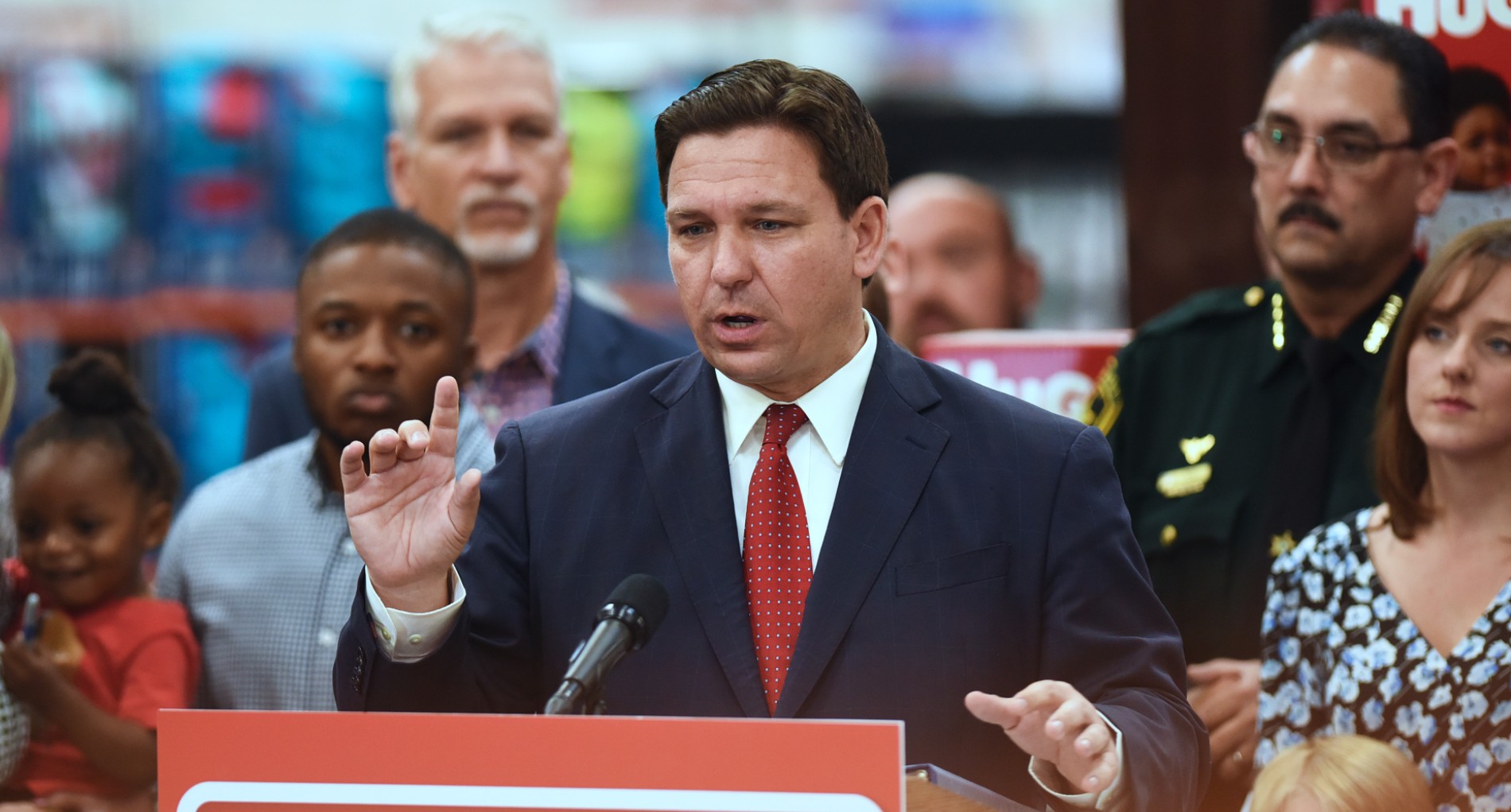OPINION: This article may contain commentary which reflects the author's opinion.
Florida Republican Gov. Ron DeSantis is not backing down against Disney.
While speaking at Seminole State College in Sanford, DeSantis reiterated his promise that Florida’s taxpayers will not take on Walt Disney World’s debt when and if the Reedy Creek Improvement District (RCID) dissolves in 2023.
The popular Republican governor suggested that some legislative measures may be put in place to prevent that from happening.
“I can tell you this, that debt will not end up going to any of these local governments. It’s not going to go to the state government, either. It’s going to absolutely be dealt with by (Disney and other businesses) that are currently in that district,” DeSantis said.
“We’re going to have a proposal to kind of make sure that that’s clear,” DeSantis said.
DeSantis wants the state to assume control of the Disney-dominated self-governing body, which has run the Orlando-area theme parks for over 50 years.
“More likely that the state will simply assume control and make sure that we’re able to impose the law and make sure we’re collecting the taxes,” DeSantis said.
Democrats in the state have attacked DeSantis for going after Disney, claiming the dissolution of RCID would force county taxpayers to foot the bill for more than $1 billion in bond debt.
DeSantis’ plan alleviates that concern.
“First of all, it’d be a cash cow for them if they had Disney,” DeSantis said, referring to the counties.
“But I’m worried that they would use that as a pretext to raise taxes on people when that’s what they would want to do anyway and then try to blame Reedy Creek, so we’re not going to give them that opportunity,” he added.
WATCH:
In what should not be a surprise to many, Americans are not happy with Disney.
A new survey found that nearly 7 in 10 Americans no longer want to do “business” with Disney and will instead seek out “family-friendly alternatives.”
The poll found that a whopping 68.2% of voters are now “less likely to do business with Disney.” Of that number, 57.2% said they are “much less likely” to buy from Disney.
Additionally, 69% said that they are likely to “support family-friendly alternatives to Disney.”
Perhaps most importantly, the survey found that 48.2% of Democrats also said they are less likely to “do business” with Disney over the company’s stance on including LGBTQ characters and language at its park, shows, and movies.
In late March, leaked videos went viral on social media of an executive producer at Disney admitting to “adding queerness” to children’s programming.
Disney announced plans to ax gendered language such as “boys and girls” and “ladies and gentleman” in their park greetings to promote gender inclusivity.
Disney’s diversity and inclusion manager Vivian Ware was heard speaking about the changes in a video conference call recorded by City Journal’s Christopher Rufo.
“We’ve provided training for all of our cast members in relation to that. So now they know it’s ‘Hello, everyone,’ or ‘Hello, friends,'” Ware said in the video.
“We want to create that magical moment with our cast members, with our guests,” she said. “And we don’t want to just assume because someone might be in, our interpretation, may be presenting as a female that they may not want to be ‘princess.'”
SCOOP: Disney diversity and inclusion manager Vivian Ware says the company has eliminated all mentions of "ladies," "gentlemen," "boys," and "girls" in its theme parks in order to create "that magical moment" for children who do not identify with traditional gender roles. pic.twitter.com/OWsGTUoeCA
— Christopher F. Rufo ⚔️ (@realchrisrufo) March 29, 2022
DeSantis signed a bill to strip Disney of its self-governing status. Disney has operated in a special district known as the Reedy Creek Improvement District since 1967, giving the company full self-governing rights and special tax privileges.
DeSantis also signed into law Florida’s “Parental Rights in Education” bill.
The bill prohibits teachers from giving classroom instruction on “sexual orientation” or “gender identity” in kindergarten through third grade.
DeSantis signed a bill that will impose four-year term limits on school board members and subject most material in district schools’ libraries and classrooms to governmental oversight and approval practices.
He said the legislation will enable parents to “defend the education of their kids” and keep instructional, library, or reading list material in line with state standards.
